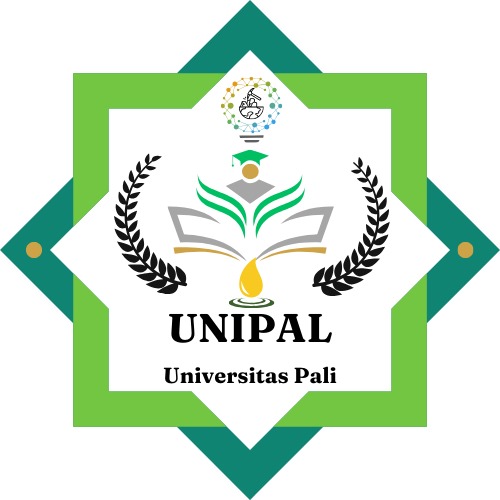Integrating Local Wisdom and Social Innovation in Community-Based Tourism Development in Pekalongan, Central Java
Keywords:
Community-Based Tourism, Local Wisdom, Social Innovation, Batik Heritage, Pekalongan, EmpowermentAbstract
Purpose – This study aims to explore how local wisdom and social innovation can be integrated into the development of community-based tourism in Pekalongan, Indonesia. The research responds to the need for sustainable tourism models that empower local communities while preserving cultural heritage, particularly in regions rich in traditional batik craftsmanship.
Design/methods/approach – The study employed a qualitative approach using a single case study design. Data were collected through participatory observation, cultural mapping, and in-depth interviews with local stakeholders, including community leaders, batik artisans, and tourism managers. The research focused on identifying the physical and non-physical cultural assets of the community and the forms of social innovation used in tourism development.
Findings – The findings reveal that local wisdom—such as communal cooperation (gotong royong), traditional batik-making knowledge, and historical spatial layouts—plays a central role in shaping tourism activities. Social innovation occurs through collaborative community efforts, digital marketing adoption, and inclusive participatory planning. These strategies have led to increased local engagement, diversified income sources, and enhanced tourist experiences.
Research implications/limitations – The study is context-specific to Pekalongan and may have limited generalizability to other regions without similar cultural or social conditions. The qualitative nature of the research also limits the ability to statistically measure impacts but provides deep contextual insight.
Originality/value – This research contributes to the discourse on sustainable tourism by offering a localized model that blends indigenous knowledge with innovative practices. It highlights how community-based approaches can foster empowerment and cultural resilience in tourism development.
References
Aji, R. R., & Faniza, V. (2024). Community-Based Ecotourism: A Case Study of Pentingsari Village. Journal of Architectural Research and Design Studies, 8(1). https://doi.org/10.20885/jars.vol8.iss1.art8
Andari, R., Supartha, W. G., Riana, G., & Sukawati, T. G. R. (2022). The Strength of Local Wisdom Values as a Differentiation Strategy in Creating Sustainable Tourism Competitiveness. Webology, 19(1), 4088–4104. https://doi.org/10.14704/web/v19i1/web19269
Andjanie, I. F., & Putro, H. P. H. (2023). Creativity and Tourism: Four Creative Cities in Indonesia. International Journal on Recent Trends in Business and Tourism, 07(03), 74–93. https://doi.org/10.31674/ijrtbt.2021.v07i03.006
Bello, F. G., Lovelock, B., & Carr, N. (2016). Enhancing Community Participation in Tourism Planning Associated With Protected Areas in Developing Countries: Lessons From Malawi. Tourism and Hospitality Research, 18(3), 309–320. https://doi.org/10.1177/1467358416647763
Cai, Z., Fang, C., Zhang, Q., & Chen, F. (2021). Harmonious Coexistence of Cultural Heritage Protection and Tourism: The Mount Lushan Comprehensive Tourism Platform. https://doi.org/10.21203/rs.3.rs-309299/v1
Ghofur, A., & Ismanto, K. (2022). Contribution of Local Wisdom as a Halal Tourism Attraction: Case Study of Pekalongan City Central Java Indonesia. International Journal of Islamic Business and Economics (Ijibec), 6(1), 52–62. https://doi.org/10.28918/ijibec.v6i1.5199
Hoang, K. V. (2021). The Benefits of Preserving and Promoting Cultural Heritage Values for the Sustainable Development of the Country. E3s Web of Conferences, 234, 00076. https://doi.org/10.1051/e3sconf/202123400076
Huda, I. U., Karsudjono, A. J., & Sugiarto, S. (2024). Analysis of Swamp Buffalo Tourism Potential to Improve Community Welfare in Paharangan Village, South Kalimantan. Ijes, 1(3), 117–125. https://doi.org/10.59613/pqh11y95
Komariah, N., Saepudin, E., & Rodiah, S. (2019). Women Empowerment in the Development of Agro Tourism Villag. https://doi.org/10.2991/iclick-18.2019.15
Kotlyarova, O. A., Nekhoroshikh, N. A., Povalyaeva, O. N., & Strelnikova, M. A. (2020). Inclusive Tourism as a Factor of Sustainable Development of the Territories. E3s Web of Conferences, 208, 05011. https://doi.org/10.1051/e3sconf/202020805011
Kusumawati, D., Rusdarti, R., Setiyowati, D. L., & Handoyo, E. (2022). Education Contribution to the Sustainability of Pesindon Batik Tourism Village of Indonesia. https://doi.org/10.2991/assehr.k.211125.066
Manzoor, F., Wei, L., Asif, M., Haq, M. Z. U., & Rehman, H. U. (2019). The Contribution of Sustainable Tourism to Economic Growth and Employment in Pakistan. International Journal of Environmental Research and Public Health, 16(19), 3785. https://doi.org/10.3390/ijerph16193785
Nguyen, D. T. N., d’Hauteserre, A.-M., & Serrao-Neumann, S. (2021). Intrinsic Barriers to and Opportunities for Community Empowerment in Community-Based Tourism Development in Thai Nguyen Province, Vietnam. Journal of Sustainable Tourism, 30(4), 723–741. https://doi.org/10.1080/09669582.2021.1884689
Poetra, R. A. M., & Nurjaya, I. N. (2024). Review of Regional Tourism Arrangements in Order to Preserve the Local Wisdom of Indigenous Peoples in Indonesia. Journal of Law and Sustainable Development, 12(4), e3553. https://doi.org/10.55908/sdgs.v12i4.3553
Prasetyanti, R., & Nugroho, A. A. (2019). Governance Network in Sustainable Tourism Development: A Case of Thematic Kampung Tourism in Malang, Indonesia. https://doi.org/10.2991/aicobpa-18.2019.42
Prasetyo, N. (2023). Showcasing the Uniqueness of a Marine Destination by Adopting Local Wisdom. Ictmt, 1(2), 45–57. https://doi.org/10.56910/ictmt.v1i2.19
Syahrir, E. A., & Pramono, R. W. D. (2021). Role of Physical Elements in the Image Formation of a Creative City. Arteks Jurnal Teknik Arsitektur, 6(3), 363–372. https://doi.org/10.30822/arteks.v6i3.876
Utomo, M. N., Kaujan, K., & Mubarak, A. A. (2022). Potential Development of Agro-Tourism Based on Local Wisdom in North Kalimantan Villages, Indonesia. https://doi.org/10.4108/eai.6-10-2022.2325706
Wibowo, A., Karsidi, R., Sudardi, B., & Wijaya, M. (2021). The Development of Organic Tourism Villages Based on Participation and Local Wisdom in Indonesia. E3s Web of Conferences, 232, 04004. https://doi.org/10.1051/e3sconf/202123204004
Wibowo, A., Suwarto, J. W., & Permatasari, P. (2023). Local Wisdom and Social Entrepreneurship as the Foundation for the Development of Organic Tourism Villages in Karanganyar Regency, Indonesia. E3s Web of Conferences, 444, 03002. https://doi.org/10.1051/e3sconf/202344403002
Wolor, C. W., Suhud, U., Nurkhin, A., & Citriadin, Y. (2021). The Role of Human Resources in Strengthening the Creative Industry During the Covid-19 Pandemic. Qas, 22(184). https://doi.org/10.47750/qas/22.184.04
Wu, H., Chen, Z., Yan, J., & Tang, X. (2022). Problems of China’s Global Demonstration Tourism Cities: Case Study of Liyang, China. https://doi.org/10.21203/rs.3.rs-1803447/v1
Zhu, H., Zhang, J., Yu, X., & Shan-feng, H. (2019). Sustainable Tourism Development Strategies and Practices of World Heritage Sites in China: A Case Study of Mt. Huangshan. International Journal of Sustainable Development and Planning, 14(04), 297–306. https://doi.org/10.2495/sdp-v14-n4-297-306
Downloads
Published
How to Cite
Issue
Section
License
Copyright (c) 2024 Rizki Muhammad Iqbal,Laily Nurhidayah

This work is licensed under a Creative Commons Attribution-ShareAlike 4.0 International License.















